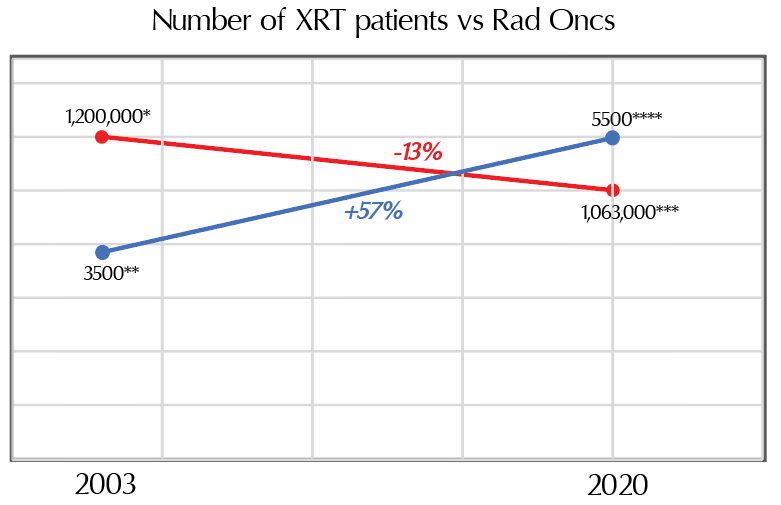I have a strong interest in onc and will be entering clerkship next year, so rad onc is still something I am at least considering for now (maybe I'm stupid for that idk).
It's painfully obvious from lurking on this forum that the job market is abysmal and is likely to not change or maybe even get worse when I will be applying to staff positions in like ~8-9 years. My question is, if you are a graduate of a top residency/fellowship program like HROP/MSKCC/MDACC, is your job outlook significantly better than the avg applicant? Intuitively, I want to think that even with limited jobs, if you are among the very top among the applicant pool, you should still be able to get those limited positions, but I'm unsure of whether this is empirically true.
I am projecting that I will have about 13 peer-reviewed pubs (10 first-author) and about 8 presentations at national and international conferences (incl. ASTRO, CARO and ESTRO) by the application deadline. If I am able to get into a top residency program, it would also enable me to be very productive during that time and vie for top fellowship spots. Given that the demand for rad onc has dropped significantly due to the job market being poor, my chances at getting into a top residency may be better than ever.
This is all still speculation, but theoretically, if I do score a spot at a top program, should that be enough for me to overlook the poor job market?
Edit: might also relevant to add that I'd be willing to do up to two fellowships if that meant I could secure a good job.
It's painfully obvious from lurking on this forum that the job market is abysmal and is likely to not change or maybe even get worse when I will be applying to staff positions in like ~8-9 years. My question is, if you are a graduate of a top residency/fellowship program like HROP/MSKCC/MDACC, is your job outlook significantly better than the avg applicant? Intuitively, I want to think that even with limited jobs, if you are among the very top among the applicant pool, you should still be able to get those limited positions, but I'm unsure of whether this is empirically true.
I am projecting that I will have about 13 peer-reviewed pubs (10 first-author) and about 8 presentations at national and international conferences (incl. ASTRO, CARO and ESTRO) by the application deadline. If I am able to get into a top residency program, it would also enable me to be very productive during that time and vie for top fellowship spots. Given that the demand for rad onc has dropped significantly due to the job market being poor, my chances at getting into a top residency may be better than ever.
This is all still speculation, but theoretically, if I do score a spot at a top program, should that be enough for me to overlook the poor job market?
Edit: might also relevant to add that I'd be willing to do up to two fellowships if that meant I could secure a good job.



 )
)